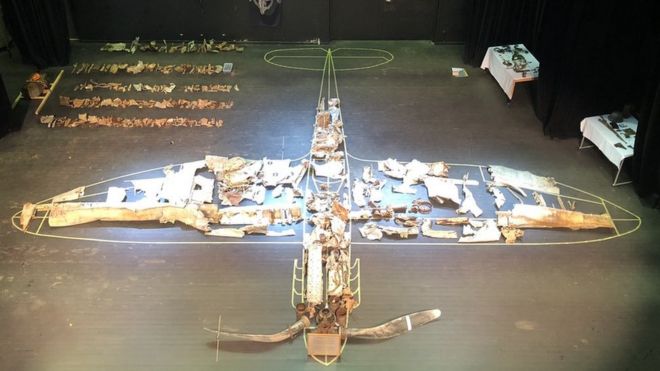I really want to see this
Peter Jackson brings First World War to life with restored coloured footage in new documentary
www.itv.com/news/2018-10-09/peter-jackson-brings-first-world-war-to-life-with-restored-coloured-footage-in-new-documentary/
Lord of the Rings' director Peter Jackson has brought the First World War to life in a documentary using rare original footage that has been colourised and transformed with modern production techniques.
Mr Jackson restored a 100-hours of footage from the Imperial War Museum's archive for They Shall Not Grow Old, bringing, in the director's own words, "the human experience of the war" to the big screen in vivid colour.
Old and damaged film was immaculately restored and slowed down to a normal speed bringing clarity to the war only previously seen by the infantrymen who saw it first hand.
The extraordinary results were as much a surprise to Mr Jackson as anyone. His team in New Zealand were initially given just four minutes of black and white footage from the IWM to see what they could achieve with the latest technology and know-how.
The director went on ask the IWM for more footage from their archives having been "blown away" by the results.
"It took me hugely by surprise," he said. "I had no way of knowing."
To recreate the realistic colours in the restored images, Mr Jackson told ITV News his team studied pictures of crowds on the internet and used his big collection of First World War uniforms as reference.
He also travelled alone through Flanders and France taking thousands photos of the former battlefields to bring the landscape the men fought in realistically to life.
The footage is accompanied with original voice overs from veterans recorded decades ago, also provided by the IWM. Some of their commentary is surprising considering the war's popular image of muddy trenches and body-strewn battlefields.
One veteran describes the experience as "really rather fun... sort of an out-of-door holiday camping with the boys with a slight spice of danger."
Mr Jackson's said his interest in WWI began as a child when his dad would tell him stories of his grandfather, who fought in the war.
He said he wanted to put a human face on the war that was meant to end all wars.
The director told ITV News: "Part of my fascination with the First World War is that it was a pointless war in that sense. Because it was a pointless war, it is all about the people who were in it. How did these people actually cope with this thing?
"Not one soldier on the Western Front, I guarantee you, not one soldier could sit down and really explain in political terms what was important about fighting the war, what was important about beating the Germans."
The documentary will be shown in schools across the country and screened in cinemas.
The project was a labour of love for Mr Jackson who worked for free on the project, restoring not only material for the 90-minute film, but 100 hours of archive footage from the Imperial War Museum's vaults.
Mr Jackson said he hoped the modernised footage would help keep the memory of the millions who lost their lives in this bloodiest of conflicts alive.
"The First World War, for good or for worse, is defined in people's imaginations by the film that is always used in all the documentaries and it looks bloody awful, for obvious reasons.
"There were technical limitations and also a hundred years of age - of shrinkage and duplication and starches.
"I think it's the best gift I can give at the moment, as well as this movie, to restore footage."






